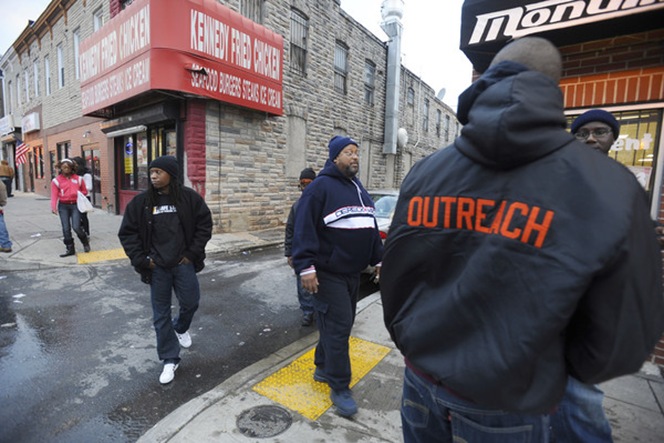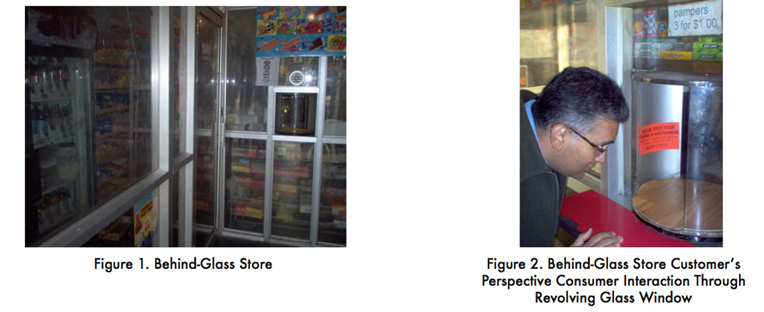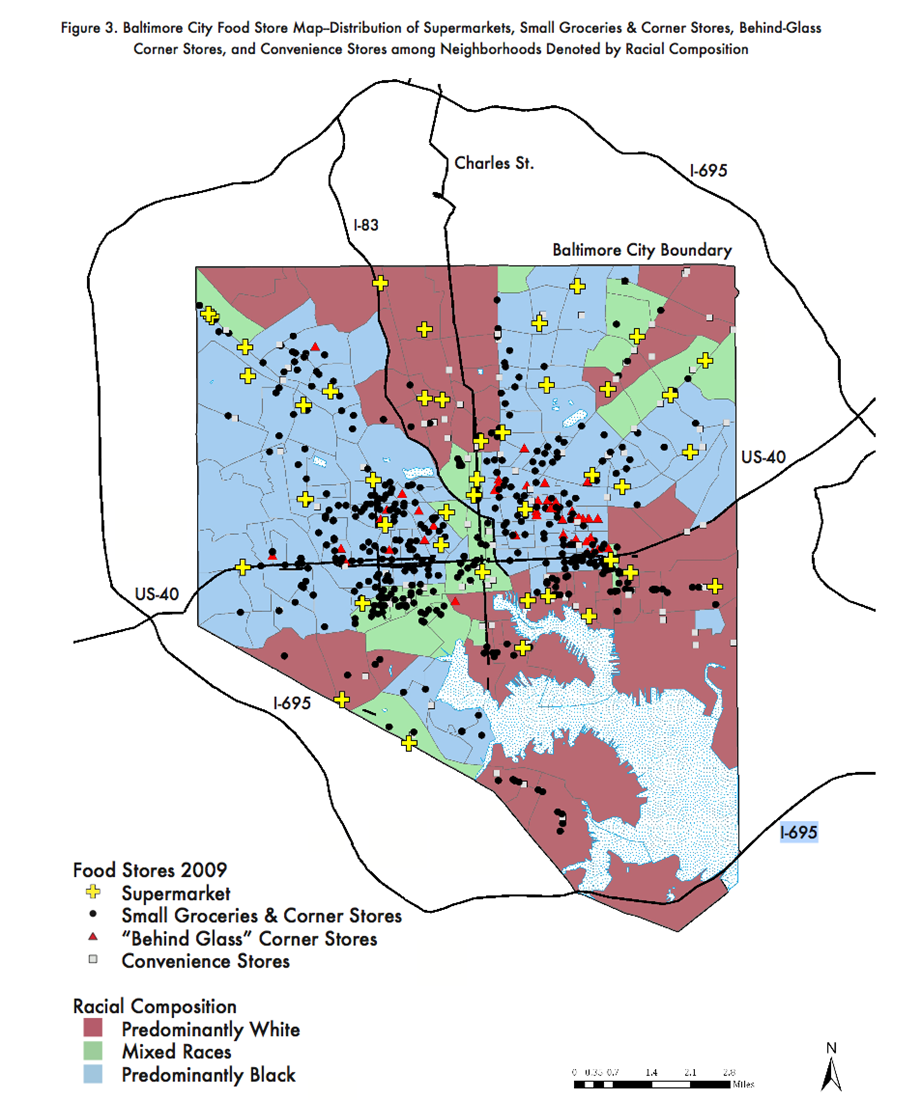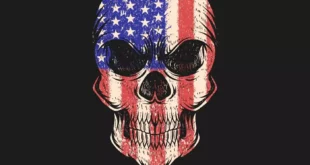Stuff Black People Dont Like
February 15, 2014

It’s illegal to discriminate as an official business practice. You can’t deny anyone service at your restaurant or keep a person from entering your store on the basis of race, sex, sexual orientation, and handicap.
America is now officially in the business of waging war on those who dare stand in the way of equality, freedom, and tolerance, meaning any form of discrimination is reason for unleashing an army of lawyers, armed police/SWAT, and the full fury of the fourth estate (the state-controlled media).
And yet the most enduring symbol (the ultimate legacy) of the civil rights movement – you know, that epoch in history that forever destroyed a private citizens right to determine with what to do with their privately-held company/business/property – isn’t white flight from urban areas.
It isn’t a black man in 1600 Pennsylvania Avenue.
It’s transparent thermoplastic, a security measure required to protect those employees (and property) of business owners who still dare try and turn a profit in cities like Newark, Camden, Birmingham, Detroit, and Baltimore.
Though the lingering evidence civilization once existed in these cities is empty skyscrapers jettisoning into the air (that same air is routinely pierced with the sound of gunshots), those merchants sticking behind to gobble-up easy food stamp/EBT money are required to ensconce their employees and entire stores contents behind impenetrable plexiglas.
Plexiglas.
Though Black History Month celebrations this February will spend considerable amount of time detailing the horrors of segregation, whites-only seating/water fountains, and the utter evil of a business owner denying black people service, there exists no symbol more powerful than the erection of plexiglass at a place of business to protect employees from the black customers it serves.
No symbol.

The purest legacy of the civil rights, for nothing can undo the natural inclinations of a people who believe they’re entitled to anything and everything like a wall of bullet-proof material.
The Johns Hopkins Bloomberg School of Public Health Center for a Livable Future issued a study where the authors lamented the Baltimore city food environment was one where “behind-glass stores” was an omnipresent, ubiquitous reminder of racial differences in behavior (they didn’t actually use those words, but plexiglas at a business has a harsh way of saying nothing, but speaking to power everything):
The final category of stores, behind-glass stores, is an impor- tant subset of corner stores. They are characterized by having barriers of Plexiglas walls separating the consumer on one side from the retail items and owner/workers on the other side.
Behind-Glass Stores: Small corner stores (found almost exclu- sively in Baltimore’s poorer, African American neighborhoods) in which all access to goods is limited by thick walls of Plexiglas serving as a barrier between the customers on one side and the cashiers and merchandise on the other. Considered a necessary safety measure by many store owners, behind-glass stores have the lowest availability of healthy foods in Baltimore as measured by the Healthy Food Availability Index ratings.
A “revolving plexiglas pass-through” – where customers exchange money for a good (so that no psychical contact between employee can occur) – is a hallmark of the Behind-Glass store.
As Afro.com laments, “Imagine living in an area where the only sources of food within blocks are canned products bought through plexiglass partitions, from seedy corner joints, or convenience stores.”
Well, you live in an area where the shadow of the post-civil rights era has smiled.

This story is the true legacy of the civil rights movement. [Storeowner reopens store after relative was murdered: Jose Melo’s wife was also injured in the Jan. 9 shooting; police say they identified a suspect, Baltimore Sun, 1-20-2014]:
Recovering from four bullet wounds, Jose Melo’s wife begged him not to go on Monday, but he would not hear of it.
Eleven days had passed since Melo last worked at his small corner store in Southwest Baltimore. On that day — Jan. 9 — he had come out of the bathroom hearing gunshots and screaming only to see a hooded gunman fire one more shot into his wife before fleeing. Her brother, who helped out behind the counter, was slumped next to her, fatally shot in the chest.
He wasn’t scared, Melo told his wife, Irkania Moran, repeatedly. God would protect him, he said.
Melo, 52, reopened the Latino American Deli & Grocery at the corner of Christian and South Smallwood streets on Martin Luther King Jr. Day, determined to be free of fear. He walked past aisles of Gerber baby food and Glory collard greens to the rear deli where he makes the $3.75 subs he’s known for around the Carrollton Ridge neighborhood. He threw out expired gallons of milk and stuffed stale rolls and loaves of white bread into a black trash bag and went to work.
Eighteen people have been killed in Baltimore this year, a bloody start after homicides rose 8 percent in 2013 — the second consecutive year of increases.
Baltimore police said they were expanding the footprints of heavily patrolled “hot zone” violent crime areas, and every few hours a uniformed police officer stepped into Melo’s store Monday to check on him.
There was never another choice but to reopen, Melo said. He had to support his wife and their two children, and he wasn’t about to give up on the store he had purchased more than a year ago, plunking down more than $25,000 just to remodel the abandoned space.
He worked seven days a week, 12 hours a day. His first quarter earned is taped to the counter near a pile of Charleston Chews, and his first dollar hangs behind a Plexiglas wall with a few words written on it:
“Buena Suerte! Dios se lo bendiga. Genesis.” Good luck. God bless you.
God doesn’t bless fools.
Plexiglas, a constant reminder that the civil rights movement unleashed something… unmentionable.
Social capital flees when such security precautions are necessary to maintain the safety of employees in an area we call at a ‘food desert’.
So, this Black History Month, let’s all travel to convenience stores in our Whitopia’s and shake the hands of the gas station clerk. Note plexiglas partitions aren’t necessary.
But in urban America, the most enduring symbol of the civil rights movement is an ever-present reminder that the past is never dead in America.
 Daily Stormer The Most Censored Publication in History
Daily Stormer The Most Censored Publication in History


